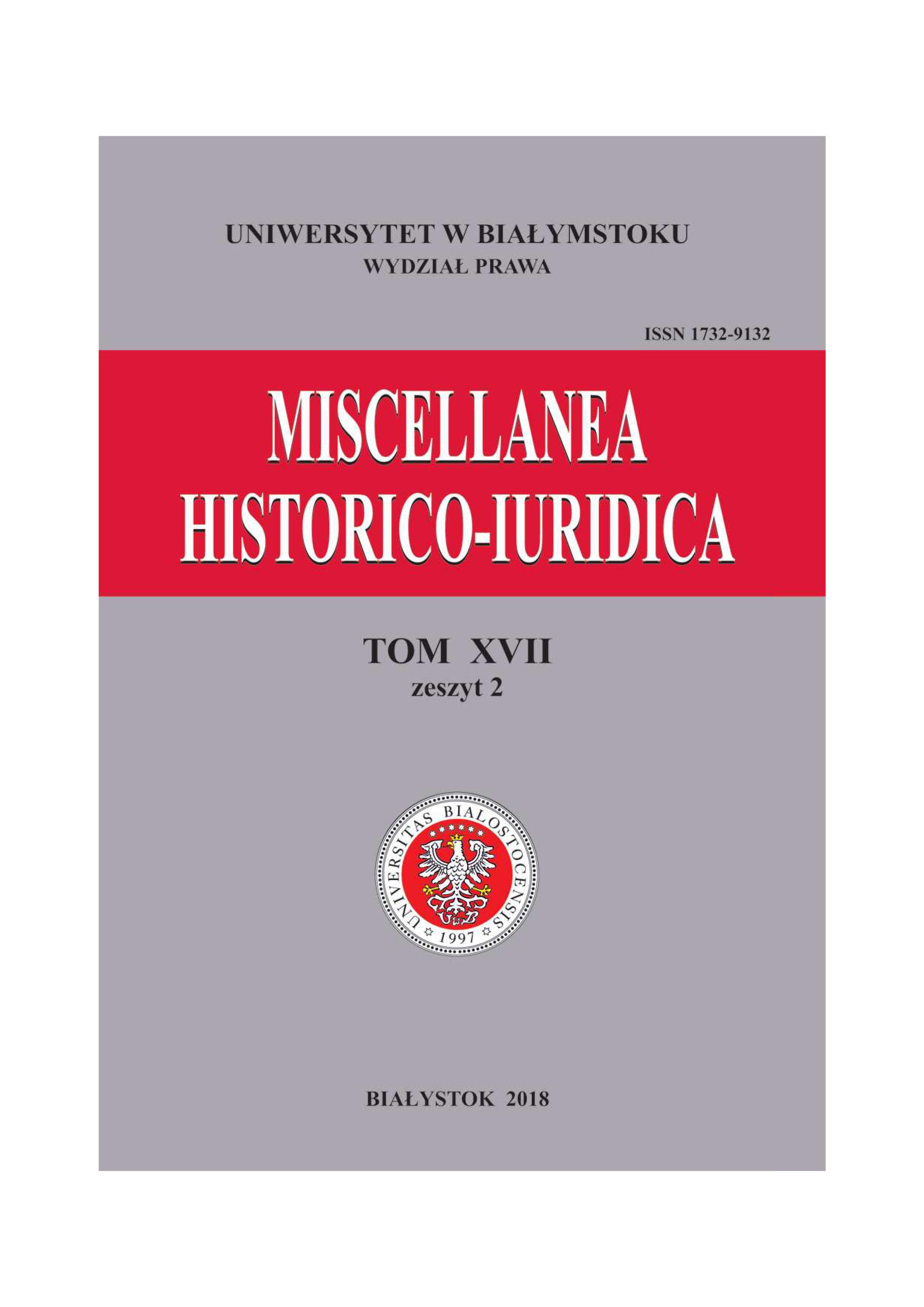Odpowiedzialność pro alienis debitis i inne niepożądane praktyki w zakresie egzekucji pożyczek związanych z uprawą roli. Rozważania na temat konstytucji Honoriusza z 422 r.
Liability of pro alienis debitis and other detrimental practices in relation to the execution of loan for the cultivation of land. Consideration on the constitution of Honorius (422 AD)
Author(s): Aldona Rita JurewiczSubject(s): Law, Constitution, Jurisprudence, History of Law
Published by: Wydawnictwo Uniwersytetu w Białymstoku
Keywords: Codex Theodosianus; lex edictalis; actiones adiecticiae qualitatis; actio de peculio; actio quod iussu; pledge; servus; colonus; actor; procurator; conductor; dominus possessionis; cultor terrarum; po
Summary/Abstract: The constitution of Emperor Honorius dated in 422 AD was issued to eliminate wrong practices in relation to the execution of claims for an outstanding loan secured by a pledge set against cultivated land. Such lands were the property of middle-class landowners but the borrowers were free and non-free managers of the estates. The execution of claims was backed by the classical actions of quod iussu and de peculio in order to link the owner of the land with the contract of mutuum. In some situations creditors asked these powerful men (potentiores) for assistance in court. The Emperor in accepting a widening of the subjective scope of actio de peculio and actio quod iussu tried to restore the rules known to classical Roman law: the impossibility of burdening the land with a pledge without the awareness and consent of the landowner, the requirement of addressing the claims to the debtor in first, the prohibition of seeking the patronage of potentes in courts, the requirement for evidences of authorization in the case of actio quod iussu. Creditors who violated the law of Honorius could lose their action against debtors.
Journal: Miscellanea Historico-Iuridica
- Issue Year: 17/2018
- Issue No: 2
- Page Range: 127-151
- Page Count: 25
- Language: Polish

